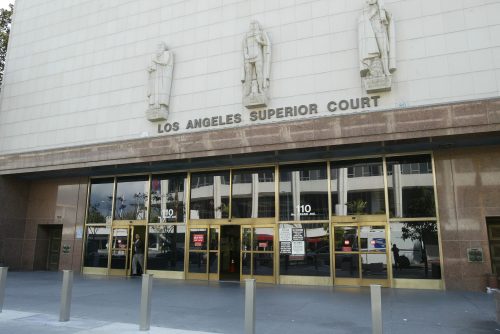
VAN NUYS, CA – A man defending himself in a criminal matter complained Wednesday he was unable to receive evidentiary files the Los Angeles District Attorney’s Office is using to prosecute him in the Los Angeles County Superior Court Van Nuys location.
The accused appeared promptly and on time in court, and once Judge Gregory Dohi called his case, the accused sat at the counsel tables next to an independently-appointed attorney, as well as his previous defense counsel, Deputy Public Defender Alissa Rose Sterling, and across from Deputy District Attorney Rachel Reichwein Bowers.
Judge Dohi suggested the accused take his advice and utilize the independently-appointed attorney for counsel, but the accused refused, insisting, “I do my research,” speaking to the DA’s track record of prosecution that he found, and noting no one knows his case better than him…so he will best be able to defend himself and “fight for what little life he has left.”
The accused also raised concerns that he was being prosecuted in the first place, adding prosecutors “pick and choose who they’re going to prosecute and bring to trial.”
The accused added, “My brother isn’t here, only me for the same event,” noting both he and his brother were arrested for robbery charges, yet, the accused questioned, “how you going to have both robbers in custody but only keep one,” claiming his brother was released while the accused was charged for robbery.
“I’m almost 68 years old,” the accused exclaimed, and “crack cocaine was the only crime I had,” so without a history of violent offenses, the accused wondered aloud why he was even arrested while his brother was let go, considering his previous record free of violence and his older age.
Following the accused’s initial remarks, he asked for 60 days instead of 30 to adequately prepare for trial, including speaking to the necessary witnesses—including his brother, as well as to review the evidence from the DA’s office, which had yet to be provided to him.
The accused’s former counsel, DPD Sterling, intervened when mentioning the evidence for the accused to receive and review, explaining she had police reports, the “rap” sheets for the accused and his brother, the charging documents, the defense investigation, and four CDs consisting of surveillance and body worn footage to hand over to the accused.
DDA Bowers also chimed in, stating she had an issue providing the accused with the evidence for his case because the DA’s office typically shares evidence through an online link, with the URL “evidence.com,” which only attorneys are able to access, and the accused has limited access to computers in general to view evidence in such a format.
As a result, the accused requested that the evidence be shared with him in a printed format.
However, DDA Bowers said there issues involving information of victims and witnesses remaining confidential and not disclosed to the accused so as not to violate their rights, even though such information had simply been redacted in the police reports, rap sheets, charging documents, the defense investigation, and footage was already being shared with the accused by DPD Sterling.
DDA Bowers also objected to the brother’s rap sheet being shared with the accused and, as such, it was omitted from his discovery.
Judge Dohi ruled that the accused can view the evidence through the evidence.com link with the help of the independently-appointed Bar attorney and will also be able to work with him in this capacity, meaning the accused must meet with the attorney and have computer access to see his evidentiary files.
The case is set to be heard again Jan. 15 for trial setting.